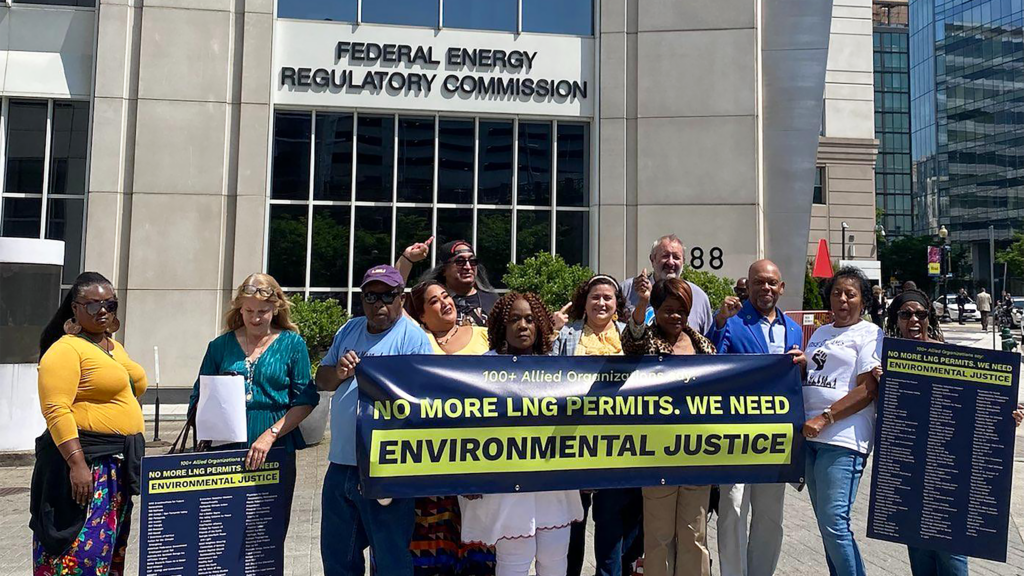House Republicans are trying to push a bill that would strip away the federal government’s responsibility to examine the full impacts that liquified methane gas (LNG) has on local communities, the climate, national security, and the economy.
Introduced by fossil fuel-backed elected officials, H.R.1130, Unlocking our Domestic LNG Potential Act of 2023, could make it easier to approve dangerous LNG export projects by:
- Mandating that the Federal Energy Regulatory Committee (FERC) deem gas exports in the public interest, and;
- Removing the first three sections of the Natural Gas Act, which require a public interest determination for LNG exports to countries that are not part of a free trade agreement.
Why is public interest determination important?
In the early 90s, Congress revised the Natural Gas Act to make exporting gas to Free Trade Agreement (FTA) nations be indiscriminately in the public interest and approved without reviewing the potential impacts. Extracting, processing, transporting and extracting LNG negatively impacts communities across the country by worsening the climate crisis, perpetuating environmental injustice, and polluting our air and water – all while raising domestic energy prices just to make higher profits by selling American fuels overseas.
The Department of Energy rubber stamps proposals for new gas export projects, even though gas export projects are clearly harming Black, Indigenous, and People of Color (BIPOC) and frontline communities that bear the disproportionate burden of environmental and climate impacts.

For exports from facilities to countries with which the United States does not have a free trade agreement, the Natural Gas Act requires the DOE to determine whether it is in the public interest to allow LNG (non-FTA countries). This ‘public interest determination’ is the only time the Department of Energy has to stop and think about the economic and environmental impact of gas exports.
Now in 2023, we’re faced with clear scientific consensus that our planet and living beings will not have a safe and stable climate if we continue to use and expand fossil fuels. Simultaneously, the Biden administration is being bombarded with proposals for new export terminals that would make the U.S. the number one oil and gas producer and exporter in the world.
A massive buildout of U.S. LNG export capacity is underway that could quadruple U.S. LNG export capacity, threatening to put global and domestic climate goals out of reach. U.S. LNG exports rose from zero in early 2016 to 10.6 billion cubic feet per day (Bcf/d) in 2022, placing the United States on par with Australia and Qatar. Proposals for new LNG export terminals are entirely located in Black, Indigenous, and People of Color (BIPOC) and frontline communities, perpetuating environmental injustice.
This bill would allow unchecked approval of all LNG exports, condemning the Gulf South to be sacrificed for false solutions. The best way to revise the DOE’s policy is to consistently apply a public interest test to LNG exports, regardless of where they are going and allow the public a meaningful way to provide input.
